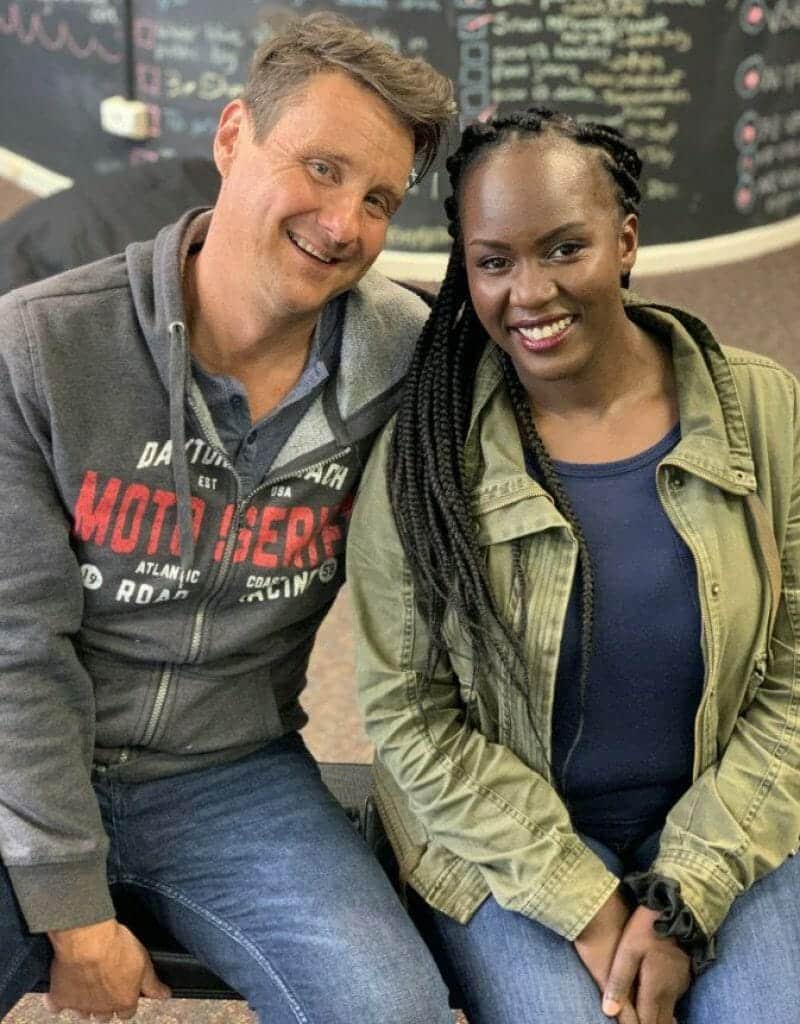Are you struggling with your weight loss journey?
Do you believe it should be easier than it is?
Do you feel that you should have lost more weight than you have, or that you deserve better results than what you’ve got?
Are you getting ready to quit because what you’re doing ‘just isn’t working’?
If you’re not doing a diet, it may be self-entitlement that is slowing you down, rather than the program itself.
What is self-entitlement?
Self-entitlement is believing you have a right to something, or that you deserve privileges, resources and outcomes without doing anything to deserve them. In other words, it’s believing that the world owes you something in exchange for nothing.
This sense of entitlement causes people to feel that they should be able to earn a certain amount of money, have a particular job, live in a particular house, and have whatever they want. When it comes to weight loss, self-entitled people believe that they should be able to lose weight without putting in the effort required.
But thinking this way only causes more pain, and will keep you stuck in the diet cycle, or contribute directly to further weight gain.
Signs you feel entitled
Self-entitled people often come across as being highly confident, and believe everything that happens will and should, benefit them. A lot of self-entitled people are only interested in their own needs, and have little regard for others. You may have come across people like that and think you know what self-entitlement looks like. However, self-entitlement shows up in many other ways which can impact our ability to lose weight. If you resonate with any of the following, there’s a good chance that you feel self-entitled when it comes to weight loss:
- You believe you should get results because you’ve taken some action (e.g. trained consistently, walked consistently, eaten well)
- You want results sooner, rather than later
- You get upset when things go wrong or don’t go to plan
- You get angry or upset when you don’t get what you want
- You have unrealistic expectations about how much weight you should lose in a certain amount of time
- You believe weight loss should be easy if you’re paying for a coach
- You compare yourself with other people
- You think you can undo 20 years of dieting damage in 6 or 12 weeks
- You don’t think you should have to work as hard as your coach says
- You get angry about being told you need to put in effort to lose weight
- You don’t follow your coach’s advice and then get angry you’re not getting results
- You want results but don’t want to consistently put in the daily effort
- You’re not aware that your actions impact other people
- You stop taking action and then complain it ‘doesn’t work’
- Your motivation to continue comes from the scale going down
- You’re not grateful and you take things and people for granted
- You say things like “I should be here”, “It shouldn’t take so long” or “I should have lost more by now”
- You create drama especially when things don’t go to plan
- You don’t think you should have to give up anything to lose weight
- You think you can eat whatever you want and still lose weight
- You get angry when your coach points out that you haven’t been doing the work
- You’re defensive when you receive constructive feedback
- You don’t want to make yourself accountable
- You’re jealous of other people who are losing weight
- You engage in excuses, pity parties or ‘poor me’ thinking
- You engage in attention-seeking behaviour
- You believe your success should be linear
- You think you’re above taking ‘small actions’
- You want people to admire you, or congratulate you without earning it
- You don’t support other people or their success
- You think the rules don’t apply to you
- You think you’re special — either you can’t get results, or you shouldn’t have to work for them
- You think that you’re different and no one understands you
- You blame your inability to lose weight on things like injuries, hormones, or menopause
- You think you should be rewarded or acknowledged for everything you do
- You believe you can ‘buy’ your way out of trouble
- You pick and choose what parts of the program you want to do, and still expect results
- You expect your coach to do the work for you
- You think your coach owes you results even if you don’t work for them
- You keep doing the same diets that don’t work and expect a different outcome
- You continue to eat binge eat and drink alcohol but expect results because you’re training
- You expect results without solving the habits that got you in the situation you’re in.
How feeling entitled impacts your weight
Feeling entitled impacts our weight in many ways and will prevent us from doing anything that will make a difference. Here’s why.
We won’t work at it
Weight loss doesn’t occur without effort. Believing we can and deserve to lose weight without working for it, or sacrificing something in order to have what we want keeps us stuck, and will most likely contribute to continued weight gain.
We won’t stick with it
Giving up or not doing what we need to, because things don’t go our way or we don’t lose weight fast enough means we’ll never give ourselves enough time to change our body. True Transformation requires us to move through different stages and different seasons. If we don’t accept this, we’ll be destined to skip from one diet to the next, which will keep us going around in circles or even lead to further weight gain.
We won’t celebrate small wins
As we examined in our blog The snowball effect: Why small things add up to big weight loss, small, consistent actions compounded over time are the most powerful when it comes to losing weight. However, believing that weight loss should happen quickly means we’ll discount these small actions as unimportant, and will only look for and expect big changes, which will lead to self-sabotage. We’ll also find it harder to celebrate our invisible success, which can be a powerful motivator to stay the course and keep going.
We won’t have a support network
It’s vital to have a support network if we want to lose weight. However, if we’re too busy having tantrums because our weight loss is slower than we’d like, or we’re jealous of other people’s results and are not supporting them, how can we expect people to support us?
We won’t focus on what’s important
Successful weight loss requires us to accept and focus on our own journey. But if we’re too busy complaining, wishing the journey was easier or different than it actually is, or comparing ourselves to other people, we’ll never be in the right frame of mind to accept our reality in order to become aware of the things we need to change. And if we’re not aware of what needs to change then we’ll continue to get the same results we’ve always got.
We won’t be accountable
Being self-entitled and expecting that weight loss should just happen for us means we won’t understand the importance of being accountable. So we’ll continue to do what we feel like doing, or what is easy, because in our mind, we’re special and we should get the results that we want, no matter what. But as we’ve already seen, accountability is what holds transformation together, and is the difference between getting results and staying the same. Not making yourself accountable denies you the opportunity to do the things that will help you lose weight.
We won’t be coachable
When working with a coach to lose weight, it’s imperative that we listen to their guidance and advice, even if we don’t like it, because they are the experts when it comes to weight loss. However, those who believe they’re entitled to results will discount what their coaches tell them because they believe they shouldn’t have to do what everyone else has to, in order to lose weight. Self-entitled people are also less likely to ask for help, because they think they know it all already, or because they feel their coach should take most of the responsibility and do most of the work for them. Not being coachable denies you the opportunity to learn new things and change your situation.
We won’t change our habits
Finally, if we’re not coachable and can’t accept that we need to sacrifice things, and work at losing weight, we’ll never change our habits. And habits are what cause us to become overweight in the first place. Unless we put in the work and replace our bad habits with better ones, we will continue to do what we’ve always done, which will only lead to more weight gain.
How to overcome self-entitlement
Acknowledge that you’re not special
Acknowledge that you’re not special. There is no situation that you’ve ever been in, that someone else, somewhere in the world hasn’t already gone through, or will go through in the future. The same applies to you wanting to lose weight. You aren’t the only one who has ever struggled to lose weight and you won’t be the last.
Accept your situation
One of the first steps you need to take is to acknowledge your situation and the reality that you struggle with your weight, and accept it for what it is. Without this acceptance, you’ll never increase your awareness of your situation, and without awareness, you won’t have the power to do something about it. It’s also important to take responsibility for where you’re at and accept that the reason you have a weight problem is because of all the choices you’ve made, and the habits you’ve built.
See weight loss as a process
The next thing is to do is understand that weight loss is a process and is more challenging than you think. The diet industry has led us to believe that weight loss should be quick and painless. But this isn’t true. True body transformation is a process that requires you to take specific steps. You can’t skip these steps and expect the result you want, no matter who you are.
Find a reason to commit
Setting a weight loss goal is all well and good, but you need to find a reason why you want to achieve it. This will help you stay the course and not give up when things don’t go your way.
Stop comparing yourself
A sense of self-entitlement is made worse by comparing yourself with others and thinking that you’re better or more deserving than them, or they’re better than you. This can lead you to think that you don’t need to do what others are doing (because you’re better than them), or someone else has an edge over you (because they’re better than you). Instead of comparing, focus on your on situation, goals and challenges. Yes, you’re unique, but you’re not better than anyone else. To get the results you want, you need to do what everyone else has to.
Support other people
The more support you give to others, the more support you’re likely to receive. But it’s just as important to celebrate with, and be happy for others who are succeeding. This can be extremely difficult for self-entitled people to do, but success leaves clues. By celebrating someone else’s success, you’ll learn something that you can apply to your own situation, which will speed up the process for you.
Learn to love the journey
Self-entitlement can occur because we’re high achievers or used to things coming easy for us. This can cause us to believe that everything should come easy. Instead of focusing on the end result and how it’s not happening as fast as you’d like, focus on the individual steps you need to take in order to get where you want to be, and learn to fall in love with the process. Once you do, you won’t strive for the result as much, and you’ll be able to get rid of your sense of entitlement.
Work with a coach
Finally, the biggest thing that will help you drop your sense of self-entitlement so you can begin losing weight is to work with a coach and make yourself accountable. A good coach will be able to identify the gaps between where you are and where you want to be, as well as how your self-entitlement is holding you back from achieving your goals. Often, we’re powerless to make change because we can’t see past our own situation. However, a coach who is emotionally removed from your situation will be able to help you become aware of the things that you need to work on. They’ll also be able to give you the right action steps for this to happen.
Ready to get results?
We are the ones people come to when all the diets fail. At Imani Tribe Transformations we can help you become more self-aware and ditch the self-entitlement that has been holding you back.
Through our Diet Antidote Transformation Program (DATP™️) we help you address the problems that have led you to your current situation, by giving you specific, personalised action steps that will help you overcome your hurdles.
DATP™️ is a complete Transformation system designed to cut through all the fad diets and gimmicks, and remove all the confusion about how to Transform your body and life. Our program will give you scientifically proven knowledge, systems, tools and skills to help you stay on track with your goals, no matter the situation, even on your worst days.
If you’re ready to get started, we’re ready to help.


















